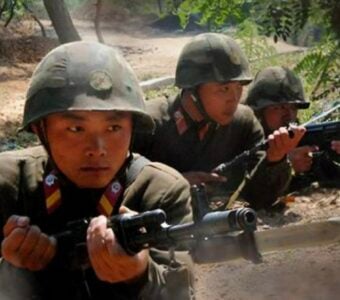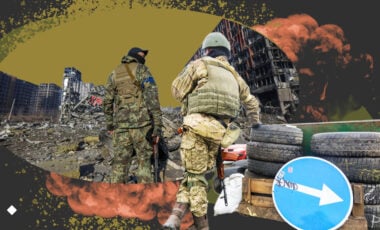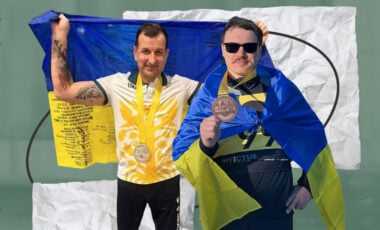Three things to understand about the US position toward Ukraine’s NATO membership

Ukrainians – from average people living their lives between air raid alarms to politicians and civil society – are understandably disappointed in the outcomes of the NATO summit in Vilnius this month.
Compared to last year's summit in Madrid, many pinned their hopes on Ukraine coming away with a clear and expedited path to NATO membership.
Many believed the close coordination with partners and support in fighting the war would translate into a warm welcome to NATO, sending a stern message to Russia that could turn the tide of the war. This disappointment was pointed out to some key partners, such as the United States, Germany and France – the same cohort who, in 2008, opposed the Membership Action Plan (MAP) as the path for Ukraine and Georgia to follow toward joining NATO.
However, some major differences as of summer 2023, while Ukraine is mounting its long-awaited counteroffensive. Those differences define Ukraine's aspirations towards bilateral cooperation with NATO countries and the integration into the alliance as its 33rd member. Several tendencies also explain why the US has not backed Ukraine's membership now; thus, both Kyiv and Washington need to find ways to make bilateral ties constructive and productive.
First, Kyiv needs to understand that the scale of US foreign policy is large. While Ukraine wanted assurances, America saw the summit as an opportunity to confirm its global and regional commitments and strengthen ties with allies within the bloc, including new members like Finland. After Russia started the full-scale war, the US made sure to strengthen NATO's eastern flank by building closer ties with its European allies.
Second, the United States, for better or worse, still has bilateral issues with Russia. Putin discretely pulled out of the New Start Treaty, which Biden and Putin had agreed to extend in early 2021. After the typical nonsense accusations and railings against America, Putin suspended Russia's participation in the treaty with the US on reducing intercontinental-range nuclear weapons. However, the treaty is still in effect, at least on paper – and this is also a priority for the Biden team. Moreover, the Wall Street Journal journalist Evan Gershkovich remains in a Moscow prison, accused of espionage. Those discussing US positions on the Russia-Ukraine war should take this into account as well.
Third, to think realistically about Ukraine's acceptance into NATO as its 33rd member, it was necessary to get the 32nd, Sweden. Only the night before the summit, Türkiye's President Erdoğan fell in line with accepting Sweden's membership bid. That negotiation process was mostly unseen in Ukraine, which is one of the reasons the public frustration with the summit's outcomes is so high. At the same time, it was a clear priority for the Biden administration, but as the talks were private, it came as a bit of a surprise.
Türkiye has the second-largest army in NATO, and the US cannot allow itself to damage this alliance significantly. Türkiye's noncompliance with NATO and US decisions raised quite a skepticism in the US, but not to the extent that anyone posed serious questions about Türkiye leaving NATO.
On the other hand, the situation didn't leave the Biden administration with much choice but to allow the purchase of F-16 fighter jets, which Ankara had been repeatedly asking for. In a broader context, it is in the strategic interests of the United States not to allow Russia and Türkiye to get even closer than they already are.
That said, Kyiv and Washington need to get away from the summits' paradigm when one expects breakthrough decisions. Kyiv will benefit from pursuing the institutional dimension of cooperation with the US in the long term. It will make Kyiv look stronger in the eyes of other partners, given that the US also tries to renew security partnerships with its allies. Above that, America is the largest contributor to Ukraine's defense in terms of allocated aid. In the context of the constantly growing Ukraine's needs, Kyiv needs to stabilize relations with its key international partner.


















































